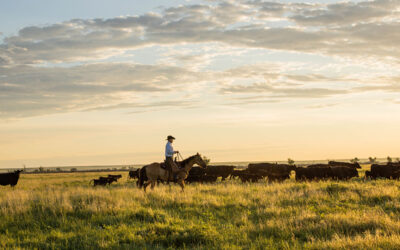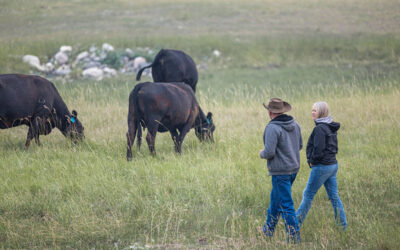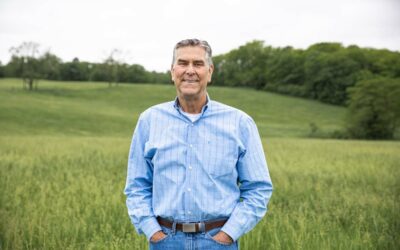
The ‘milk cow’ that changed a beef business
If not for a milk cow and a hurricane, the magic formula that is Riverbend Ranch might not be.
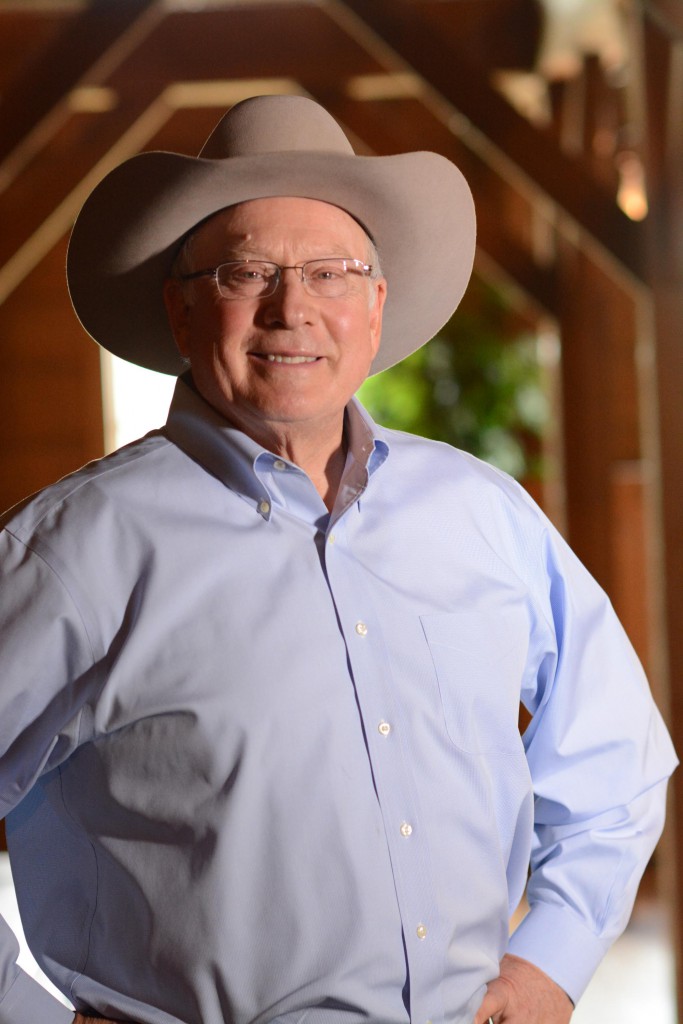
First, the dairy animal: It belonged the VanderSloot family, and it was 12-year-old Frank’s job to care for it, milking it by hand morning and night.
It might seem like a far stretch from the small northern Idaho farm that supported the family decades ago to now owning the 19th largest seedstock ranch in the nation, but without that early connection to agriculture, Frank might have occupied his time and resources with another venture.
“I think that’s the way to raise kids,” Frank says. (For the record: I agree!) He always had some cattle around, but 25 years ago he began building the registered herd.
“It was a selection of one at a time, and honestly that’s what I think has given us an advantage in the marketplace today: the fact that we chose every cow that we thought were some of the best out of these herds,” Frank says. He’s seen people spend years trying to “upgrade.”
“We started with the entire cowherd being exceptional,” he says.
And as for Hurricane Floyd? Well, it claimed half of Steve Harrison’s family cowherd in North Carolina. The animal science graduate had come back to manage that enterprise on the diversified farm, and when the flood waters rose, bringing unimaginable devastation, he said, “I can’t go back to working in the hog barns.”
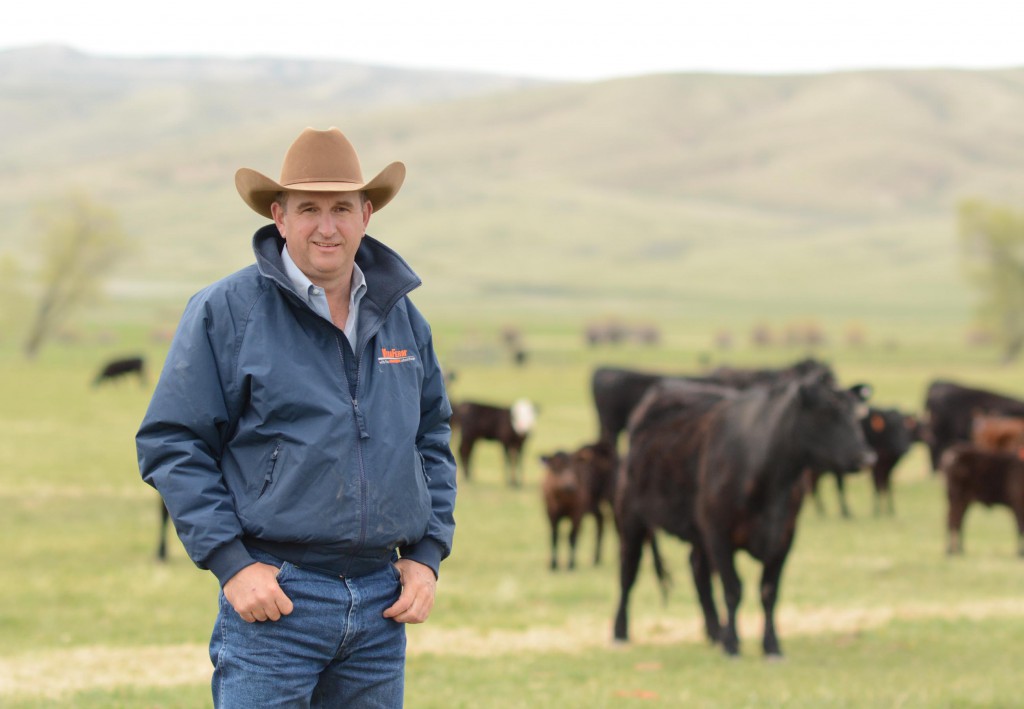
So he headed West.
Together Frank and Steve, now the general manager, have shared a mission, making Riverbend not only successful but a well-known source for genetics that will do it all. They are unashamed of their focus on carcass quality.
“If we’re in the business, we should do it right,” Frank says
The vision was his, but it has continued with Steve.
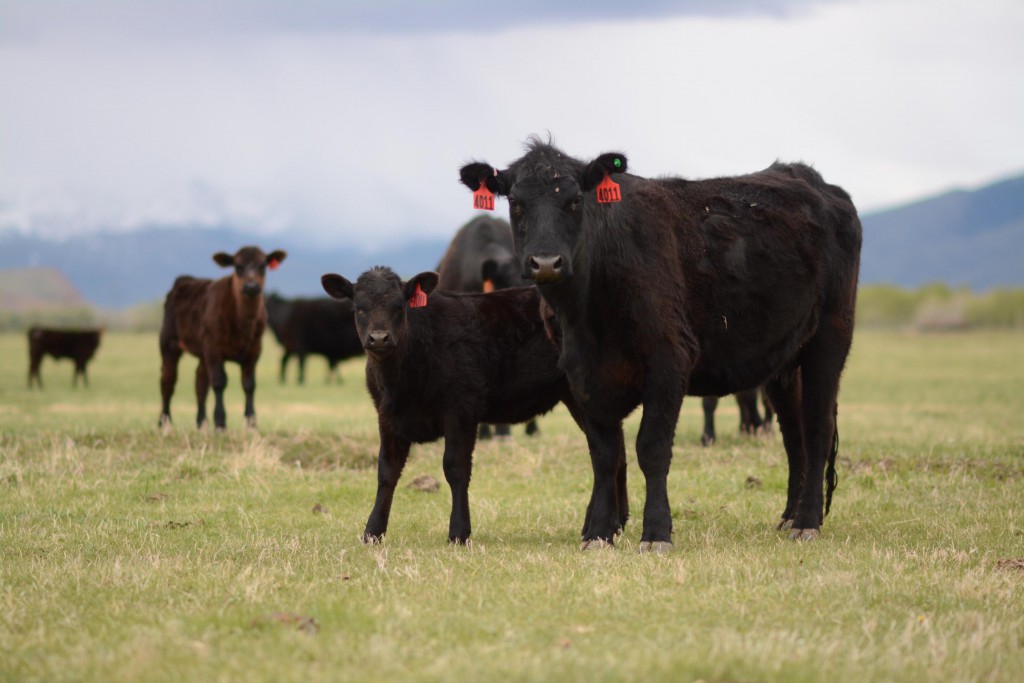
“We’re highly data-driven,” he says. “We’re trying to put as much carcass into the cattle as we possibly can without sacrificing their ability to work in the real-world. It’s our guiding principle.”
They have a large commercial herd and several satellite ranches to stock. They see how their genetics perform in the grow yard and on the cattle they retain through the feedlot, both their own and purchased customer calves.
“Each group of cattle gets better in terms of yield, in terms of conversion, in terms of grade,” Steve says.
But it all comes back to making sure the cattle work for the people buying Riverbend genetics.
“Our focus is our commercial bull customers. Everything we do revolves around trying to service them.”
When I visited last month, I heard “customer” a lot, and not in a way that seemed like lip service. When they create cattle, they have you in mind, and their numbers prove it.
May your bottom line be filled with black ink,
Miranda
PS–Watch for “the rest of the story” in a fall issue of the Angus Journal.
You may also like
Making It Better
Most sane folks don’t choose to go into business with Mother Nature. She’s a fickle and unpredictable partner. So, how did two people with zero agricultural background, no generational land, wealth or genetics carve a profitable partnership with her in Southwest Kansas? By focusing on progress and a desire to leave things better than they found them – which also earned them the CAB Sustainability Award.
Excellence by Everyday Improvement
The cattle business awards no trophies for participation. Nor does any rancher plan and work each day in hopes of wider recognition for doing things right. Yet caring for their land and livestock with a daily devotion to “excellence in practice” quietly switched a spotlight on JPM Farms. Jean-Paul and Marlene Monvoisin with their adult children, Colton Monvoisin and Josee Monvoisin-Garner, operate the quality-focused seedstock Angus ranch in the rolling hills near Parkbeg, Saskatchewan.
Building Bridges for Better Beef
As the clock ticked past 2:00 a.m., handshakes finally signaled a deal. History was made that Thanksgiving morning in 1997 when a group of producers bought a material interest in what was then Farmland National Beef Packing Company.

